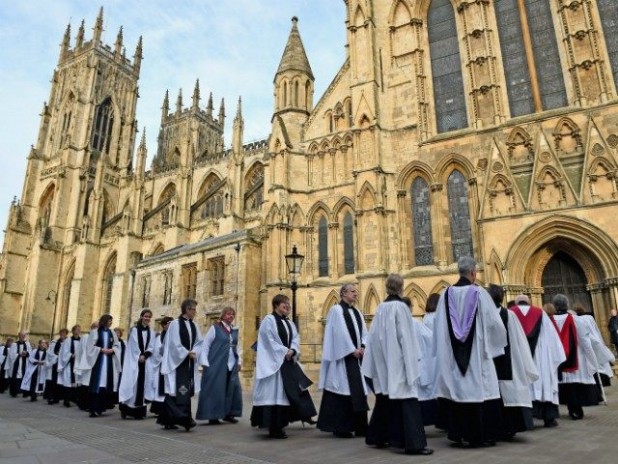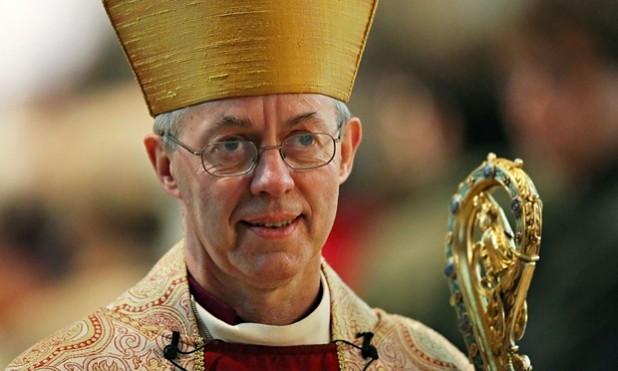Andrew Anglin
Daily Stormer
December 27, 2015

Most Christian institutions the world over have turned suicidal, but the Church of England is a special case. This is at least partly due to the leadership of Archbishop of Canterbury Jason Welby, who is part Jew.
Welby has rushed to destroy what remained of the institution, praising homo marriage, ordaining female bishops, coming out and saying bizarre things like he hopes the prince converts to Buddhism.

So it isn’t especially surprising they’re now plotting to diversify themselves.
The Church of England has vowed to fast-track black and ethnic minority clergy into positions of authority, accusing itself of institutional racism. The Church will identify a “talent pool” of ethnic minority clergy this year, who will be mentored with the aim of increasing representation among bishops, deans and archdeacons.
Currently there are five black, Asian and ethnic minority (BAME) clergy in leadership positions within the Church, of which John Sentamu, the Archbishop of York, is perhaps the best well known, the Guardian has reported. In addition, approximately three per cent of the last general synod – the Church’s parliament – were from ethnic minorities. A breakdown of the new synod, which has just been elected, has not yet been released.The figures are in line with the general makeup of the Church’s professional body – 2.8 per cent of clergy overall are from ethnic minorities. There are no statistics on how many ethnic minority congregants worship within the Church of England each week, but the fact that Pentecostal churches, attended predominantly by black Christians, are thriving has been highlighted by those seeking to make a case that the church is institutionally racist, driving congregants away.
They say that the lack of ethnic minority people at the front of England’s churches puts off ethnic minority Christians from worshiping there, and have called for the Church to be more inclusive.
Jason Roach, a minister at Christ Church Mayfair, said the “woeful under-representation” of ethnic minority people in churches left young people without a role model. “I’ve spoke to young black people, trying to encourage them to join the church, into vocations, and often what they’ve said is ‘we don’t feel this is a place for us’.”
Although he admitted that he personally had been encouraged and nurtured in the Church, “you are nevertheless always aware that you’re very much in a minority, and at times that can be intimidating,” he said.
